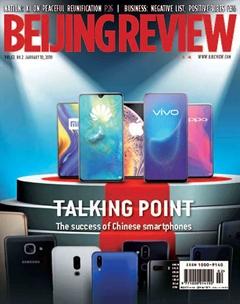Science Without Borders
By Lan Xinzhen
Science and technology is among the factors that have taken the human civilization to the level it enjoys today. Every milestone in scientific and technological progress has taken society a step forward.
While there are no complete records of all scientific and technological innovations, among the recorded ones, the compass invented in China and the steam engine in the West are among the indisputable contributors to progress.
In the course of time, these epochal inventions have been bested and replaced by more advanced innovations. Though advanced in their times, these pioneering inventions are out of date in todays modern times.
Numerous scientific innovations that enjoyed their heyday in history were later replaced by new ones. Today, although we still admire those inventors, we are not awe-struck by their innovations or inventions as we now boast of science and technology much more sophisticated than in the past.
Will the science and technology of our times endure forever? Certainly not. In the future, people will view todays science and technology just as we treat those of centuries ago.
Therefore, technicians and scientists ought to give full play to their innovations during the latters limited “shelf life.” However, the application and spread of advanced science and technology has been hitting man-made snags in todays world. Many of these blocks are imposed by the developed West.
For instance, while China has made remarkable achievements in aeronautical technologies, making some aerospace workers in the United States desirous to cooperate with their Chinese colleagues, American politicians have been preventing it.
Science and technology is a wealth that belongs to all mankind. To prevent its spread and exchange of scientifi c data for the sake of narrow interests is a selfi sh act.
The International Space Station, a manned space laboratory that saw the first launch in 1998, will complete its mission in 2020 and then go out of orbit, falling into the sea. By then, China will have established its own space station, which will be the only one of its kind in space at that time. China has expressed its willingness to share the space station with the rest of the world. But if U.S. politicians continue with their obstruction, it will be impossible for U.S. aerospace workers to use the Chinese space station.
The 5G communication technology, or 5G, is currently the most advanced in the world. Communication technology has been advancing by leaps and bounds. It took less than 10 years to develop 3G from 2G and then just three years to leap to 4G. Now communication technology has entered the 5G era, which will help further develop the Internet of Things and artifi cial intelligence.
Both China and the United States are frontrunners in 5G technology. U.S. telecom companies and consumers have a huge demand for Huaweis 5G equipment but have been blocked access because of U.S. politicians focus on their own interests.
However, 5G is not the end of communication technology. In the near future, quite possibly, it will be replaced by quantum communication technology. The space station technology of today will also be replaced by new ones. One day in future, human beings may be able to undertake interplanetary journeys as easily as they travel by plane from one country to another. Focusing on immediate interests and turning a blind eye to the future will hamper science workersefforts to maximize the benefi ts of science and technology and will also affect entire society.
The world needs a consensus to maximize the benefi ts of science and technology, condemn efforts to impose borders on science, and seek to remove restraints on communication.
Under the Western worlds blockade of science and technology in the past decades, China adopted a policy of independent innovation and today, has taken the lead in many areas. But instead of shutting its doors to other countries, China has been seeking to share its sci-tech achievements through international communication and cooperation.
At a time when science and technology is moving forward with giant strides, those who try to restrain communication and sharing the progress will only succeed in making laughing stocks of themselves.

